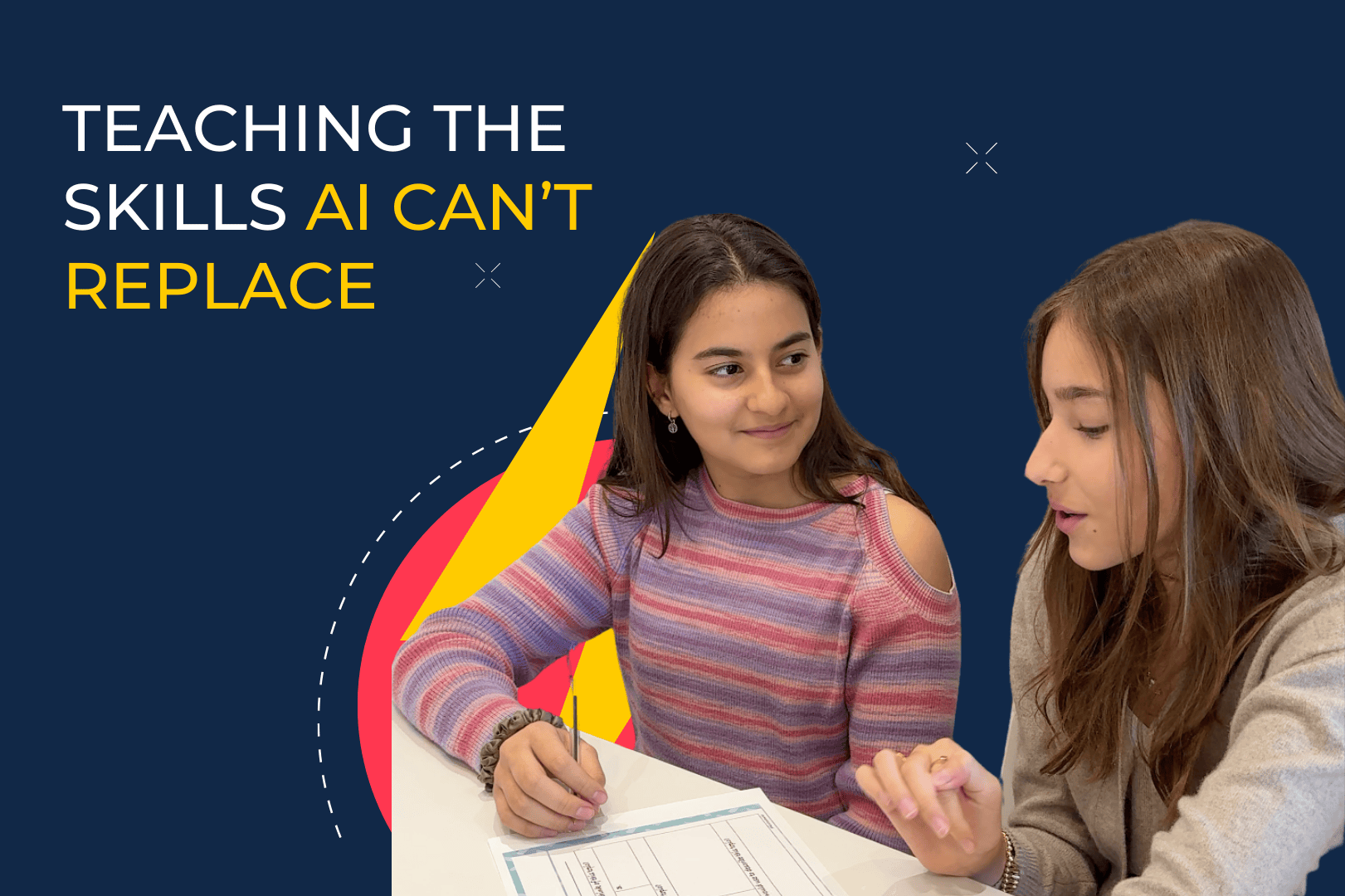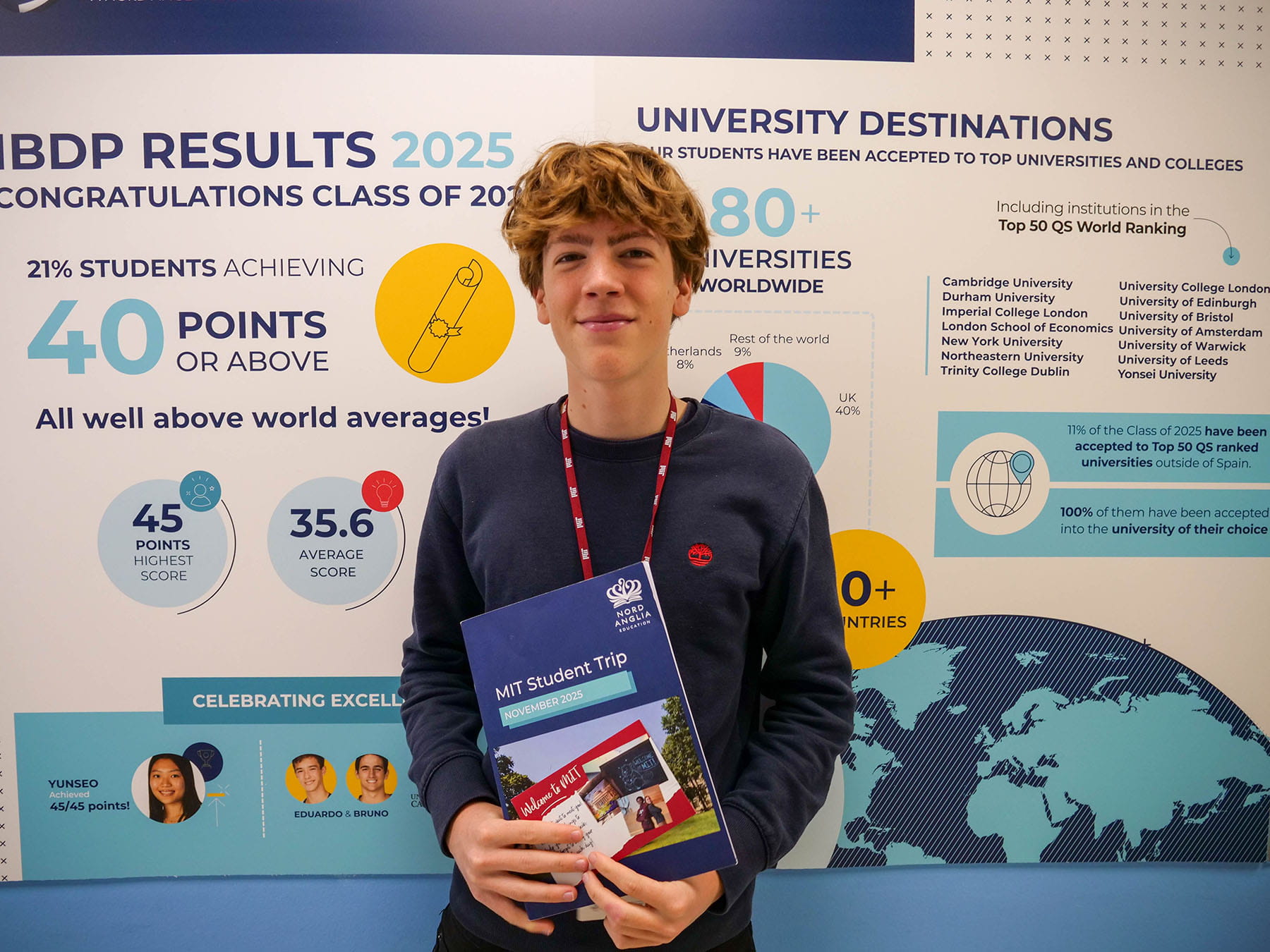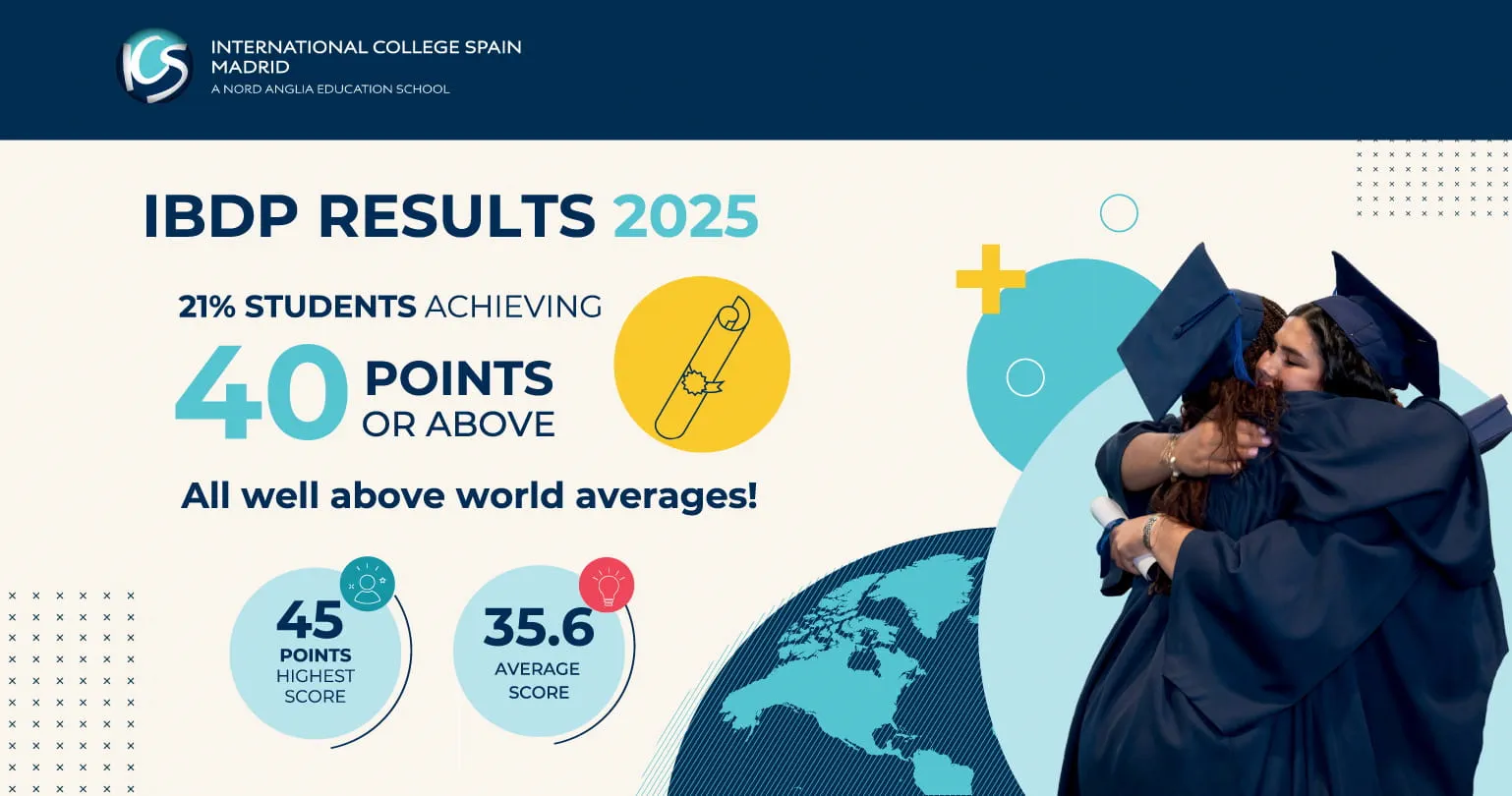Our students have the world at their feet. It’s our job to provide the academic teaching, holistic support, and global opportunities they need to identify and achieve their dreams.
At the heart of the future-focused education we offer is the
International Baccalaureate (IB) curriculum. International College Spain (ICS) is proud to be an IB World School, which means we teach the IB continuum of three programmes from the Early Years through to graduation. The IB is a diverse, academically exacting, global programme, which is seen by many universities and employers as the world’s leading school curriculum. But how, exactly, does the IB curriculum prepare our students for the future – including the challenge and opportunities of higher education? In this article, we highlight the benefits of an IB education at ICS – and share some of the future-proofed skills the IB develops.
What is the IB curriculum?
The
International Baccalaureate (IB) curriculum was established by Swiss academics in the 1960s. It’s a highly respected educational programme for students aged from 3 to 18. The IB offers a truly global education, which emphasises skill development alongside academic knowledge. The curriculum nurtures our learners’ critical thinking, resilience, and empathy, and instils a passion for learning. It also fosters enquiry and supports personal development, ensuring students are well-rounded and build a breadth of skills.
The IB continuum of programmes
We’re proud to be the only school in Madrid to teach the IB continuum of programmes, in English. This provides a continuous learning pathway from the age of 3 through to 18.
The three core IB curriculum programmes are:
- The Primary Years Programme (PYP) for Early Years and Primary students aged 3-11.
- The Middle Years Programme (MYP) for Middle School students aged 11-16.
- The IB Diploma Programme (IBDP) for Sixth Form students aged 16-18.
How does the IB help students get into university?
The IB curriculum is designed for the future.
It empowers our students to explore different cultures, viewpoints, and universal human values. It also develops essential learning traits through the IB Learner Profile. Crucially, the IB curriculum is academically challenging and immersive, resulting in an IB Diploma qualification that is respected by top universities and employers.
Five key benefits of the IB curriculum
Academic excellence
The IB challenges our students academically. It emphasises interdisciplinary learning, oral presentations, and original research.
Studies shows that students who achieve excellent IB Diploma results outperform their peers in various academic assessments. For instance, IB curriculum students demonstrate a higher proficiency in maths, reading, and writing compared to those following other programmes. A US study also found that IB Diploma graduates were better equipped for the rigour of university than those who had followed other curricula.
Holistic learning
The IB curriculum also prioritises personal development and global citizenship.
The IB is a holistic framework that nurtures creativity, intercultural understanding, and critical thinking. This creates students who are, among other things, knowledgeable, open-minded, and principled. These are some of the 10 IB Learner Profile traits, which every student needs to demonstrate.
International outlook
One of the core benefits of the IB is the fact it’s packed with international themes, experiences, and opportunities. It encourages students to become global citizens who are aware, thoughtful, and empathetic. These are hugely important traits in our interconnected world.
Our students also have the chance to learn multiple languages, including Italian, Portuguese, Arabic, and Korean, as well as French and German.
Future-readiness
Our IB curriculum equips students with an array of future-ready skills, including critical thinking and problem-solving. These attributes are prized by universities and colleges, as well as by employers and global organisations.
Recognition and mobility
The IB curriculum is highly regarded by universities worldwide, increasing our students’ opportunities.
The IB’s standardised benchmarks also ensure consistency and excellence across different schools, cultures, and countries. This is particularly useful for families who move around a lot, as children can continue their studies without interruption.
Our IB curriculum is prized by the world’s best universities
By offering the IB Diploma – preceded by the PYP and MYP – we provide a clear pathway to higher education and beyond.
But do the world’s top universities actively look for students who have studied the IB curriculum? The answer is a resounding ‘yes’.
The IB’s effectiveness as a pre-university course is recognised, for example, by university admissions officers, who acknowledge that IB Diploma graduates are better prepared for the academic and personal demands of higher education.
The Director of Admissions at King’s College London in the UK, for example, is on record as saying: ‘Students who come to us with an IB education are among the world’s best and are immediately ready for the rigour and depth of our most demanding courses’.
Making sure our students realise their ambitions
Ultimately, our goal is to ensure every child fulfils their aspirations. We want them to graduate with the skills, qualifications, values, and global outlook they need to flourish in the future.
This, of course, includes achieving fantastic results. For the past five years, our IB Diploma students have achieved a 98% pass rate. And with 1 in 3 scoring 40 points or more in 2023, we’re proud to be among the world's top performing IB curriculum schools.
With excellent IB point scores and a breadth of skills and experiences, our graduates earn places at some of the best universities in the world. This includes Cambridge and University College London in the UK, as well as Ivy League institutions like Harvard and Stanford.
To find out more about the benefits of our IB curriculum – and how our all-through programme sets students up for success – please get in touch with ICS’ Admissions Team.









